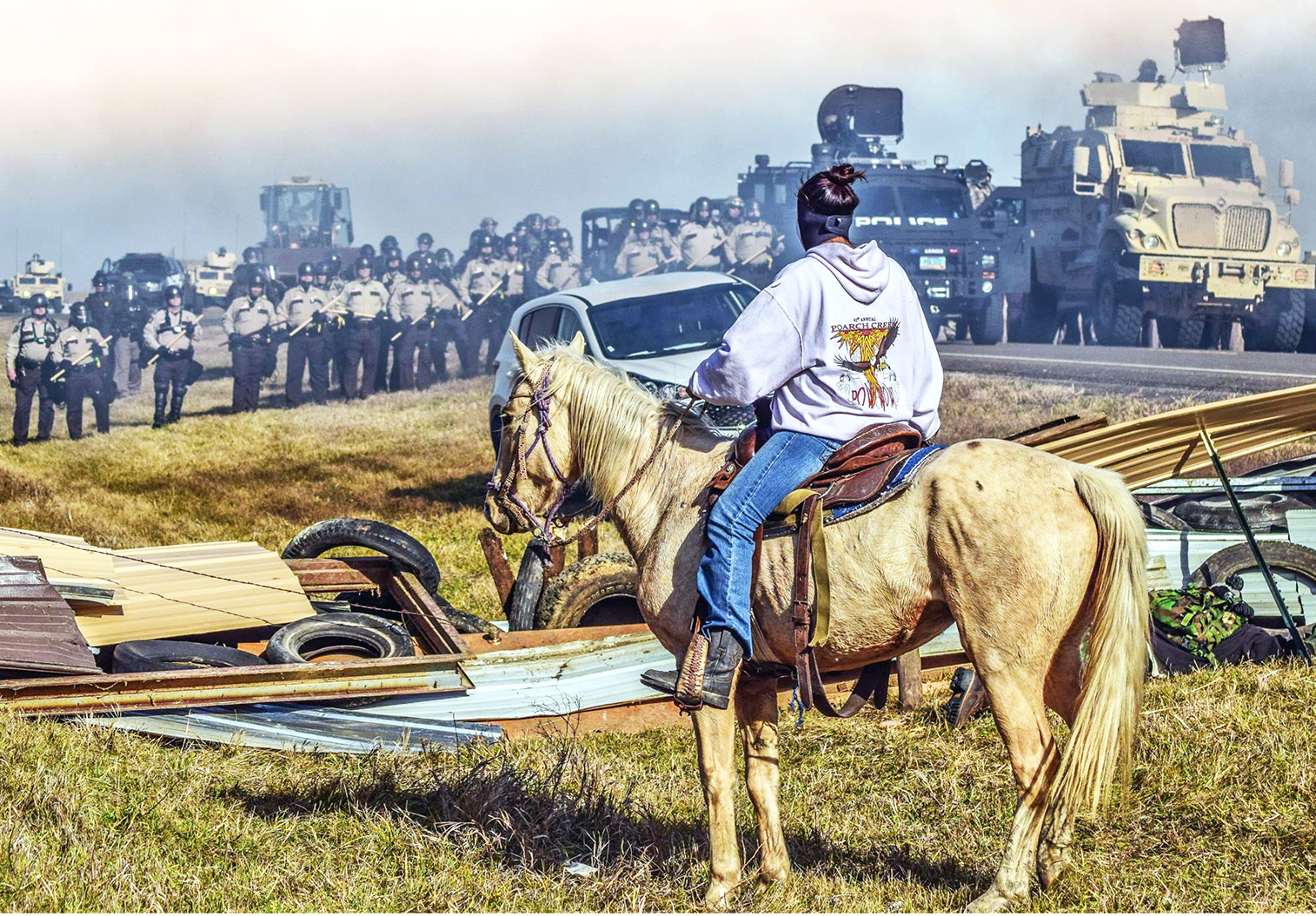This calendar informs about

- This event has passed.
Native Liberation Struggles – Dialogue with Andrew Curley & Nick Estes – 11/19

Join us for events on Native Liberation movements with members of The Red Nation, Andrew Curley and Nick Estes.
From their manifesto: “The Red Nation formed in November 2014 out of a desire to contribute to the widespread resurgence of strong, vocal, organized and radical Indigenous struggle in Albuquerque and beyond. We formed to address the marginalization and invisibility of Indigenous struggles within mainstream social justice organizing, and to speak out and strategically fight against the ongoing destruction of Indigenous life and land.”
We will have a ‘mapping session’ on Wednesday, 11/14, 12pm-1pm, in which we will discuss some readings about contemporary Native Liberation movements. Then, we will have a ‘dialogue session’ on Monday, 11/19, 12pm-1pm, in conversation with Andrew Curley (in-person) and Nick Estes (via video-conference). A free lunch will be provided for participants in both sessions.
In preparation for the ‘mapping session,’ please read some of the following brief texts:
1. The Red Nation’s Manifesto – https://therednation.org/manifesto/
2. Principles of Unity –
https://therednation.org/2018/08/11/principles-of-unity/
3. Ten Point Program –
https://therednation.org/manifesto/10-point-program/
If you have time, read one or more of the following articles written by Andrew, Nick, and The Red Nation collective:
a. “Hwéeldi continues” –
https://therednation.org/2018/06/01/2016/
b. “Born on the Fourth of July: Counterinsurgency, Indigenous Resistance, and Black Revolt” –
https://therednation.org/2017/07/04/born-on-the-fourth-of-july-counterinsurgency-indigenous-resistance-and-black-revolt/
c. “Greater Chaco Is Not for Sale! Stop Trump’s Colonial Land Grab”
https://therednation.org/2018/02/26/greater-chaco-is-not-for-sale-fighting-trumps-colonial-land-grab/
**About the speakers**:
Andrew Curley is a Diné geographer and a member of the Navajo Nation. He received his Ph.D. in the Department of Development Sociology at Cornell University. His primary research was coal development, climate change, and sovereignty in the Navajo Nation. He is currently an Assistant Professor in the Department of Geography at the University of North Carolina at Chapel Hill. His current work concerns: indigenous geography, resource conflicts, energy, water rights, land, tribal sovereignty, and Diné Studies.
Nick Estes is Kul Wicasa and a citizen of the Lower Brule Sioux Tribe. He is an Assistant Professor in the American Studies Department at the University of New Mexico. His research engages colonialism and global Indigenous histories, with a focus on decolonization, environmental justice, anti-capitalism, and the Oceti Sakowin. Estes is the author of the forthcoming book _Our History is the Future: #NoDAPL, Standing Rock, and the Long Traditions of Indigenous Resistance_ (Verso, 2019), which places into historical context the Indigenous-led movement to stop the Dakota Access Pipeline. He edited with Jaskiran Dhillon the forthcoming volume _#NoDAPL and Mni Wiconi: Reflections on Standing Rock_ (University of Minnesota, 2019), which draws together diverse perspectives from leaders, scholars, and activists of the Standing Rock movement.
Location:
Social Movements Lab, Franklin Humanities Institute, Smith Warehouse, Bay 5, Duke University, 114 S. Buchanan Blvd., Durham, NC
For Parking and Accessibility info, see: https://fhi.duke.edu/contact-us
Facebook event: https://www.facebook.com/events/326527358159371/
